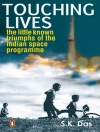This book describes the development of portable, wearable, and highly customizable hand exoskeletons to aid patients suffering from hand disabilities. It presents an original approach for the design of human hand motion assistance devices that relies on (i) an optimization-based kinematic scaling procedure, which guarantees a significant adaptability to the user’s hands motion, and (ii) a topology optimization-based design methodology, which allowed the design of a lightweight, comfortable device with a high level of performance. The book covers the whole process of hand exoskeleton development, from establishing a new design strategy, to the construction and testing of hand exoskeleton prototypes, using additive manufacturing techniques. As such, it offers timely information to both researchers and engineers developing human motion assistance systems, especially wearable ones.
Mục lục
Introduction.- Mathematical background.- Optimization-based scaling procedure.- ABS hand exoskeleton prototypes: experimental results.- Aluminum hand exoskeleton prototype .- Conclusion.
Giới thiệu về tác giả
Dr. Matteo Bianchi is currently a Postdoctoral Researcher of the Department of Industrial Engineering of the University of Florence (DIEF), Italy, Prof. Benedetto Allotta’s research team. Prior to his current role at DIEF, Matteo received the B.Sc. degree in Mechanical Engineering in 2013 and M.Sc. degree in Biomedical Engineering in 2015, both from the University Florence, Italy. He spent also three years as a Ph.D. student conducting research activity within the Mechatronics and Dynamic Modeling Laboratory (MDM Lab) of the DIEF. During his Ph.D. course, his primary research interest lies in the field of biomechanics and biorobotics, with special attentionto the development of innovative design strategies of hand exoskeletons human motion assistance and to their testing.
This book is the result of the Matteo’s Ph.D. thesis and collects the outcomes of his activity, which resulted in multiple publications in international journals and peer-reviewed conference papers, and in the awarding his Ph.D. degree in Industrial and Reliability Engineering in April 2019.His current research interests include mechanical design, modeling and
development of wearable robotic systems and exoskeletons.












